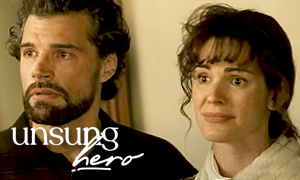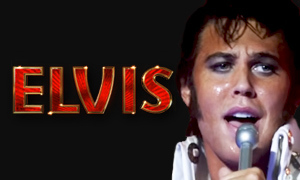Judy: History vs. Hollywood
| REEL FACE: | REAL FACE: |
Renée Zellweger
Born: April 25, 1969 Birthplace: Katy, Texas, USA | Judy Garland
Born: June 10, 1922 Birthplace: Grand Rapids, Minnesota, USA Death: June 22, 1969, London, England, UK (drug overdose) |
Finn Wittrock
Born: October 28, 1984 Birthplace: Lenox, Massachusetts, USA | Mickey Deans
Born: September 24, 1934 Birthplace: Garfield, New Jersey, USA Death: July 11, 2003, Cleveland, Ohio, USA Judy's 5th Husband |
Jessie Buckley
Born: December 28, 1989 Birthplace: Killarney, Ireland | Rosalyn Wilder
Production Assistant at The Talk of the Town Nightclub |
Gemma-Leah Devereux
Born: August 9, 1990 Birthplace: Dublin, Ireland | Liza Minnelli
Born: March 12, 1946 Birthplace: Los Angeles, California, USA Judy's Daughter |
Rufus Sewell
Born: October 29, 1967 Birthplace: Twickenham, Middlesex, England, UK | Sidney Luft
Born: November 2, 1915 Birthplace: New York City, New York, USA Death: September 15, 2005, Santa Monica, California, USA (heart attack) Garland's 3rd Husband |
Bella Ramsey
Born: 2004 Birthplace: UK | Lorna Luft
Born: November 21, 1952 Birthplace: Garfield, New Jersey, USA Judy's Daughter |
Michael Gambon
Born: October 19, 1940 Birthplace: Cabra, Dublin, Ireland | Bernard Delfont
Born: September 5, 1909 Birthplace: Tokmak, Ukraine, Russian Empire Death: July 28, 1994, Angmering, England, UK (heart attack) Supper Club Owner |
John Mackay
| Johnnie Ray
Born: January 10, 1927 Birthplace: Dallas, Oregon, USA Death: February 24, 1990, Los Angeles, California, USA Musician and Friend |
Did Hollywood studios supply Judy Garland diet pills and speed to keep her skinny and working nonstop?
The Judy true story confirms that she never had any resemblance of a normal childhood. As seen in the movie, Hollywood studios like MGM encouraged her to take appetite suppressants, uppers, and downers to keep her thin and working productively. Her first feature film was an MGM musical comedy called Pigskin Parade. After execs saw her onscreen, they told her she looked like a "fat little pig with pigtails." They took food away from her before she could eat it, monitored her daily intake, and repeatedly forced her to diet. While on the set of the 1938 film Broadway Melody, a Louis B. Mayer executive told her that she was so fat she looked like a monster. Mayer restricted her to a diet of chicken soup, cottage cheese, cigarettes, black coffee and appetite suppressants.
Thus, her addictions began prior to stepping into Dorothy's ruby red slippers for the filming of The Wizard of Oz when she was 17. By that point, she was already addicted to barbiturates and amphetamines. This included stimulants to get her through the long work hours and sleeping pills to make sure she could rest. Frequent co-star Mickey Rooney corroborated Garland's stories of abuse at the hands of MGM. He too was forced to take pills, both to work and to sleep. Addiction and substance abuse would plague her for the rest of her life. It also played a part in Judy Garland's death.
Does Renée Zellweger do her own singing in the movie?
Yes. In answering the question, "How accurate is Judy?" we learned that Zellweger sang live during the shooting of the Judy Garland movie. She did so at the request of director Rupert Goold. Vocal coaching and choreography helped make the movie's performances as close to the true story as possible. -Los Angeles Times
Was Judy Garland's mother the first one to provide her with pills?
Yes. Judy's mother Ethel was a frustrated vaudeville performer who put her daughters on stage as early as possible. Judy joined her two older sisters, Mary Jane and Virginia, in the spotlight when she was just two-and-a-half years old, performing in a Christmas show on the stage at her father's movie theater. She continued performing alongside her sisters in vaudeville acts. According to Gerald Clarke's biography Get Happy: The Life of Judy Garland, her mother started giving her pills for both energy and sleep when she was not even 10 years old. Years later, she would refer to her mother as "the real Wicked Witch of the West." As for her father, she regarded him highly, but he died in 1935 when she was just 13. With her father gone, she was in the hands of her tyrannical mother.
Was Judy Garland's father gay?
Yes. Frank Gumm's closeted homosexuality resulted in a dysfunctional marriage with Judy's mother, Ethel. He reportedly engaged in homosexual affairs with young men and older teens. When Ethel Gumm found out she was pregnant with Judy in 1921, Frank contacted friend Marcus Rabwin, a medical student, and inquired about terminating the pregnancy. It is believed that Ethel was upset over the revelations about her husband's infidelity. Rabwin told frank that it was an illegal procedure that could be dangerous to Ethel. He urged the couple to have the baby. Judy Garland was born Frances Ethel Gumm on June 10, 1922 in Grand Rapids, Minnesota. -Biography
Was MGM head Louis B. Mayer really a sinister figure in Judy Garland's life?
Yes. The Judy movie true story reveals that Mayer forbid Garland from putting on weight. He pressured her to stay beautiful and got her the pills he thought she needed to remain that way. In one scene in the film, Garland is forbidden from eating cake on her 16th birthday. While filming, the studio would put her in an extremely tight corset to further slim her figure. As she developed more, they also strapped down her breasts to maintain a youthful appearance.
In the late 1990s, Garland biographer Gerald Clarke discovered 68 pages of an unpublished autobiography Judy Garland had been working on. In those pages, Garland states that MGM co-founder Louis B. Mayer groped and harassed her repeatedly. She said that when Mayer would compliment her on her voice, he would place his hand on her left breast and tell her she sang from the heart. "I often thought I was lucky," Garland recalled, "that I didn't sing with another part of my anatomy." When she became an adult she mustered enough strength to put a stop to it, telling him, "Mr. Mayer, don't you ever, ever do that again. I just will not stand for it."
Mayer wasn't the only executive who acted vile toward Garland. She recalled another executive, who she doesn't name, as calling her into his office and demanding that she have sex with him. She refused. "I'll ruin you and I can do it," he told her. "I'll break you if it's the last thing I do."
Did Judy Garland try to commit suicide when she was fired from MGM?
Yes. After making approximately 30 films with MGM, they fired her from Annie Get Your Gun in 1949 for failing to show up for work, mostly due to exhaustion, depression, addiction (to prescription drugs), and being in the midst of a messy divorce from director Vincente Minnelli. She was devastated, even more so when Betty Hutton was cast to replace her in the role she had already worked on for two months, including recording all the songs for the musical's soundtrack.
She rehabilitated herself during a lengthy hospital stay in Boston and returned to work for MGM, filming 1950's Summer Stock opposite Gene Kelly. She was then cast in the movie Royal Wedding with Fred Astaire, but by that point she had slid back into her addictive ways and once again failed to show up for work. MGM suspended her contract and she was replaced by Jane Powell. Distraught, Judy attempted suicide by grazing her throat with a broken water glass (reports at the time sensationalized the incident by stating she "slashed" her throat). The wound required only a band-aid. It wasn't her first suicide attempt. She had previously used broken glass to inflict minor cuts to her wrist in 1947 after suffering a nervous breakdown.
"I went to pieces," she later said of being fired from MGM. "All I wanted to do was eat and hide. I lost all my self-confidence for 10 years. I suffered agonies of stage fright. People had to literally push me onto the stage."
Did Judy Garland's third husband win custody of their two children?
Yes. As seen early in the film, the Judy true story verifies that she was involved in a hostile public custody battle for her two youngest children, Lorna and Joey Luft. Like in the movie, she lost custody to ex-husband Sidney Luft.
Is the Judy movie based on a book?
No. While Lorna Luft's family memoir Me and My Shadows inspired the 2001 ABC miniseries Life with Judy Garland, it did not inspire the 2019 Renée Zellweger movie. The film is based on playwright Peter Quilter's 2005 musical stage production End of the Rainbow, which played London's West End and ended up on Broadway.
Did Judy Garland meet husband Mickey Deans when he was delivering her a package of pills?
Yes, as strange as it sounds, this lines up with the Judy movie true story, at least according to what Deans said in his book about Garland, which was titled Weep No More, My Lady. He said that a friend asked him to deliver a package of prescription stimulant tablets to Garland's hotel room. He remembers her as being friendly but out of sorts. He claims that he lied and introduced himself as a doctor because her two youngest children were there. They dated off and on for three years before Deans, who was 12 years her junior, proposed. They married on March 15, 1969, roughly three months before her death.
How many husbands did Judy Garland have?
Judy Garland had a total of five husbands with little to no time in between. They included composer David Rose (m. 1941; div. 1944), director Vincente Minnelli (m. 1945; div. 1951), manager/producer Sidney Luft (m. 1952; div. 1965), actor Mark Herron (m. 1965; div. 1969), and musician Mickey Deans (m. 1969). She had three children, actress/singer Liza Minnelli, actress/singer Lorna Luft and singer Joey Luft.
Was Judy Garland broke toward the end of her life?
Yes. As emphasized in the film, Garland had personal debts and debts to the IRS that totaled around $500,000. At the time of her death, her estate was worth approximately $40,000, which equates to over $270,000 in 2019. Her daughter, Liza Minnelli, worked to pay off her debts. Frank Sinatra, who was a friend of the family, also helped.
Did Judy Garland go to London to perform because it was the only paying gig she could find?
Yes. The sold out performances took place in the winter of 1968 at The Talk of the Town nightclub in London.
Did a drug-addled Judy Garland often walk off stage when she was unable to sing?
Yes. If the people associated with her could actually get her on stage to sing, she often failed to make it through the performance and would walk off. -TheWrap
Did British audiences really throw bread rolls at Judy Garland when they were unhappy with her performance?
Yes. Garland's drinking and pill popping often led to her showing up late or singing out of tune during her sold-old performances. On one occasion in 1969 at London's cabaret club The Talk of the Town, she kept the audience waiting for over an hour. This led to ridicule from both critics and the audience, with some going so far as to throw bread, rolls and glasses at her. -Los Angeles Times
Are the two gay fans who Garland becomes friends with based on real people?
No. In the film, Judy befriends two middle-aged gay British fans who she invites to dinner after a performance. In researching how accurate the Judy Garland movie is, we discovered that there's no mention of these two men existing in real life. They seem to be included primarily to emphasize her connection with the gay community that embraced her throughout her career (and still does).
Did the audience at the supper club really stand to help Judy complete the song?
No. We found no evidence that the audience at the supper club stood to help her complete Somewhere Over the Rainbow.
Did Judy Garland commit suicide?
It is believed that Judy Garland's death was accidental and the result of "an incautious self-overdosage" of barbiturates, as Coroner Gavin Thurston stated at the inquest. He emphasized that there was no evidence of suicide and that the overdose was not deliberate. This was supported by her autopsy, which revealed no traces of drugs left in her stomach and no inflammation of her stomach lining. This indicated that she ingested the drugs over a long period of time, as opposed to downing them all at once. Further supporting this was the number of barbiturate pills that still remained in the bottles next to her bed. Judy Garland's death certificate lists her official cause of death as "accidental." She passed away just 12 days after turning 47.
Her body was discovered in the bathroom of her rented London home by husband Mickey Deans on the morning of June 22, 1969. Many obituaries at the time described her as being found on the bathroom floor. However, according to Deans, he found her sitting on the toilet.
Does Judy Garland's oldest daughter, Liza Minnelli, approve of the film?
No. Minnelli wrote on her official Facebook page, "I do not approve nor sanction the upcoming film about Judy Garland in any way." While writing the screenplay for Judy, Tom Edge (The Crown) did not reach out to any of Garland's three children. In addition, actress Renée Zellweger did not speak to the family, though she did unsuccessfully attempt to connect with Minnelli by way of a mutual friend. -Los Angeles Times
Judy Garland Interviews & Related Videos
Watch Barbara Walters interview Judy Garland in 1969. Then view the movie trailer for the 2019 film starring Renée Zellweger.







